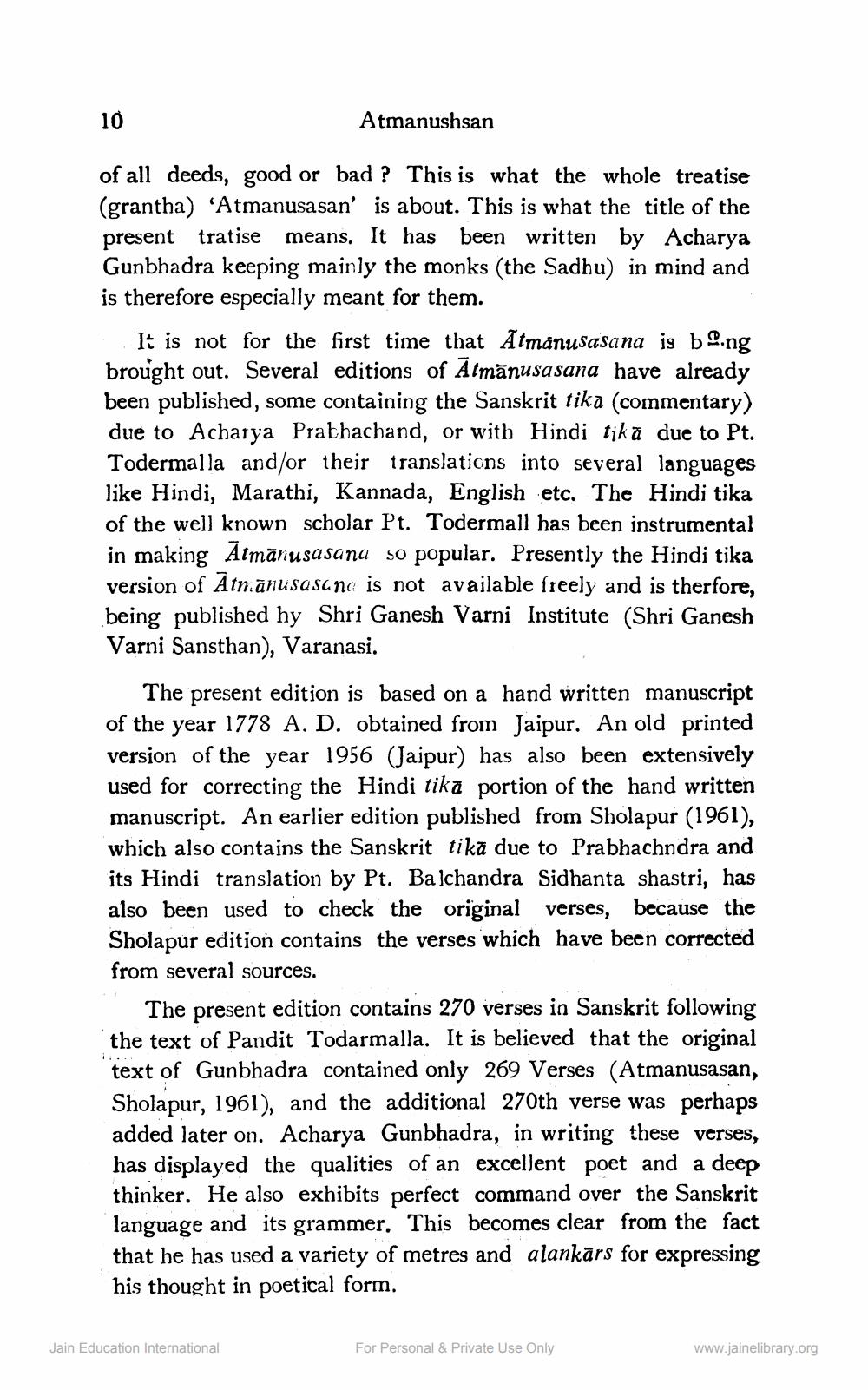________________
10
Atmanushsan
of all deeds, good or bad ? This is what the whole treatise (grantha) 'Atmanusasan' is about. This is what the title of the present tratise means. It has been written by Acharya Gunbhadra keeping mainly the monks (the Sadhu) in mind and is therefore especially meant for them.
It is not for the first time that Atmánusasana is being brought out. Several editions of Almānusasana have already been published, some containing the Sanskrit tika (commentary) due to Acharya Prabhachand, or with Hindi tikā due to Pt. Todermalla and/or their translations into several languages like Hindi, Marathi, Kannada, English etc. The Hindi tika of the well known scholar Pt. Todermall has been instrumental in making Ātmānusasanu so popular. Presently the Hindi tika version of Atnānusasuna is not available freely and is therfore, being published hy Shri Ganesh Varni Institute (Shri Ganesh Varni Sansthan), Varanasi.
The present edition is based on a hand written manuscript of the year 1778 A. D. obtained from Jaipur. An old printed version of the year 1956 (Jaipur) has also been extensively used for correcting the Hindi tika portion of the hand written manuscript. An earlier edition published from Sholapur (1961), which also contains the Sanskrit tikā due to Prabhachndra and its Hindi translation by Pt. Ba lchandra Sidhanta shastri, has also been used to check the original verses, because the Sholapur edition contains the verses which have been corrected from several sources.
The present edition contains 270 verses in Sanskrit following the text of Pandit Todarmalla. It is believed that the original text of Gunbhadra contained only 269 Verses (Atmanusasan, Sholapur, 1961), and the additional 270th verse was perhaps added later on. Acharya Gunbhadra, in writing these verses, has displayed the qualities of an excellent poet and a deep thinker. He also exhibits perfect command over the Sanskrit language and its grammer. This becomes clear from the fact that he has used a variety of metres and alankārs for expressing his thought in poetical form.
Jain Education International
For Personal & Private Use Only
www.jainelibrary.org




